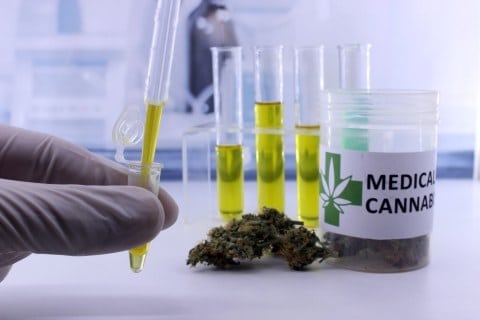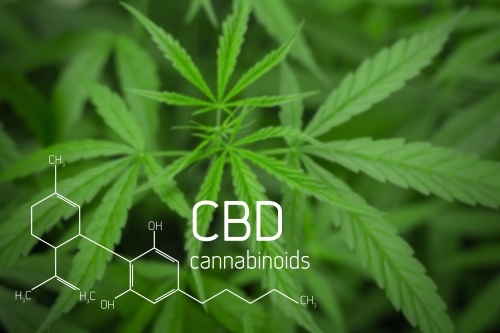Cannabidiol (CBD) has been gaining ground the last couple of years among health practitioners and enthusiasts alike due to its various medicinal properties and its ability to help treat or alleviate a number of physical and psychological diseases such as chronic pain and anxiety, as well as a number of eye disorders – all backed and verified by a number of scientific studies.
While CBD does come from the cannabis plant and hemp plant, it is not to be confused with the other well-known compound the cannabis plant produces, tetrahydrocannabinol (THC), which produces psychoactive effects sought after by recreational users.
*** CBD is mostly used to treat ailments and improve health, while THC is used to alter psycho-physiological states in a person.
How CBD Oil Is Made
Most of the times, CBD is administered through an oil under the tongue for easy absorption and assimilation within the body.
The preparation process for CBD oil or tinctures is fairly simple. First, the CBD is extracted from the cannabis plant or hemp plant and then is diluted with a carrier oil. The dilution process is very similar to the way hemp-seed oil or coconut oil is made.
Nowadays, manufacturers are using more and more hemp plants to extract CBD to produce the oil as it contains almost no THC levels – CBD extracted from the cannabis plant contains very small amounts of THC which do not produce any psychoactive effects in human beings.
Benefits Of CBD
Earlier on, we briefly stated some of the benefits of using CBD such as depression. A more comprehensive list is being offered here, so that you have a better understanding of just how medicinally powerful this compound actually is.
There are currently 9 major health benefits of CBD that have been verified by science. These include the following:
Stress/Anxiety Reduction
Anti-Inflammatory
Pain Relief
Gastrointestinal Relief
Anti-Cancer Properties
Neurodegenerative Protection Capabilities
Neuroregenerative Properties
Anti-Seizure Capabilities
Blood-Sugar Level Control
The most supported scientific evidence to date of CBD’s ability to treat diseases and disorders comes from its results during epileptic incidents. So strong was the evidence for its ability to reduce and nullify epileptic seizures, that a Food and Drug Administration advisory panel has recently approved CBD medication to treat two forms of childhood epilepsy.
High-Quality CBD Oil
While CBD has been shown to produce the above-listed benefits in both scientific studies and personal experiences, not all CBD oil is the same.
One of the major problems with CBD today lies in the production process. As there is currently not enough regulation overseeing the manufacturing procedure of oil and other CBD products, varied results ranging from outstanding benefits to no benefits at all have been documented by users.
This is exactly why it is so important to select the oil with the highest-quality of CBD properties in it.
The following list offers 5 ways to identify high-quality CBD oil.
Petroleum-Free Processing: Using petroleum solvents to extract CBD from the hemp or cannabis plant has been the most common form of extraction to date. However, it is also the most unsafe as petroleum residues can cause harm to the body. Better methods of extraction include “cold” Co2 processes that eliminate chemicals and produce a higher concentration of CBD.
Low-THC: In order to get the maximum benefit from your oil, there must be a high concentration of CBD and an extremely low concentration of THC. Most people opt for CBD to treat their ailments because there is not psychoactive effects involved. If the oil contains more than 0.3% of THC, however, some psychoactive results may occur reducing the positive experience associated with CBD.
Whole-Plant Extraction: It is believed that when the entire range of compounds are used in the extraction process, the effects of the CBD are much better. This is so because of the synergistic properties found in plants. Oils that use the entire range of hemp or cannabis plant properties (minus the THC), such as flavonoids, sugars, and other cannabinoids, tend to produce better results than oils that don’t.
Third-Party Tests: It never hurts to get a second opinion, especially when that opinion is backed by science. Companies that offer documentation as to independent analysis of their oil is preferred. The tests should check for harmful materials such as pesticides, microbiological organisms, heavy metals, and harmful solvents.
Taste: This may not seem like an important factor in selecting a high-quality oil but it plays a major role in staying on a CBD protocol for the long-term. The truth is that some people do not like the way CBD tastes in its oily form and so many manufacturers have dealt with this issue by offering a variety of flavors to choose from. Some manufacturers have even gone a step further and created other ways in which to consume CBD, the main ones of which are capsules, tinctures, and topicals.

Add CBD to your Stack Today
CBD is a miraculous compound that produces a marvelous effect in the areas of symptom relief for those suffering from both physical and psychological; disorders.
The one caveat though, is that not all oils are created equal and CBD consumers should be attentive to which manufacturer they are buying from. By following the above guidelines, users can be sure that their oil is of the highest quality and expect to see the benefits that quality CBD is capable of producing.
Kushfly, located in West Hollywood, California, USA, is an online marijuana and cannabis collective service that delivers premium medical cannabis products to registered patients in California. The company also offers CBD products and concentrates.
The post Not All CBD Oils Are The Same: Benefits, Safety, & Quality Levels For A Better Experience appeared first on Kushfly Online Collective.
from Kushfly Online Collective https://kushfly.com/blog/not-all-cbd-oils-are-the-same-benefits-safety-quality-levels-for-a-better-experience/
No comments:
Post a Comment